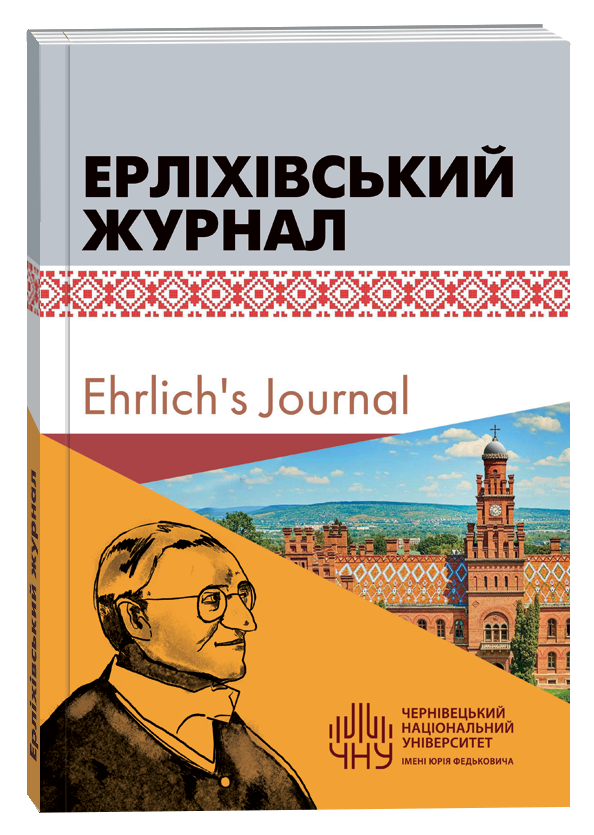ШТУЧНИЙ ІНТЕЛЕКТ В ПРАКТИЦІ ТА РІШЕННЯХ ЄВРОПЕЙСЬКОГО СУДУ З ПРАВ ЛЮДИНИ
DOI:
https://doi.org/10.32782/ehrlichsjournal-2025-12.05Ключові слова:
штучний інтелект (ШІ); системи та засоби ШІ; Європейський суд з прав людини (ЄСПЛ); Рада Європи; Європейський Союз; міжнародне правосуддя; права людини; міжнародний захист прав людини; прецедентне право; судова практика; цифрове правосуддя; цифровізація судочинства; доступ до правосуддяАнотація
У статті розглянуто вплив алгоритмічних та комп’ютерних систем, методів і програмного забезпечення штучного інтелекту (ШІ) на судову практику Європейського суду з прав людини (ЄСПЛ), зокрема, виклики та можливості, які виникають через технологічний розвиток суспільства. Проаналізовано практику ЄСПЛ щодо згадок у текстах судових рішень про системи та засоби ШІ, пов’язані з проблемними питаннями реалізації прав людини, констатовані та потенційні порушення прав людини. Особливу увагу приділено питанням приватності, захисту й обробки персональних даних та контролю за їх використанням. Це питання особливо гостро постає у справах, що стосуються автоматичної обробки даних, алгоритмічних рішень, втрати контролю над персональними даними, які можуть порушувати право на приватність у світлі статті 8 Конвенції про захист прав людини і основоположних свобод. Досліджуються конкретні рішення ЄСПЛ, в яких ШІ згадується прямо або опосередковано, визначаються основні проблеми, що виникають у судовій практиці. Із набранням чинності Акта про штучний інтелект (EU Artificial Intelligence Act) Європейського Союзу, Регламент (ЄС) № 2024/1689 Європейського Парламенту та Ради від 13 червня 2024 року, що встановлює гармонізовані правила щодо ШІ, можна очікувати, що питання використання ШІ стане ще актуальнішим для розвитку судової практики, адже технології ШІ все більше впливатимуть на демократичні процеси та основні права громадян. Тому подальше дослідження судової практики та нормативних ініціатив, спрямованих на забезпечення прав людини в умовах цифровізації, є важливим для розробки правових стандартів для використання ШІ. Стаття підкреслює, що наявні рішення ЄСПЛ, хоча й не охоплюють безпосередньо використання ШІ, дають важливі орієнтири для розвитку правових стандартів, які можуть бути адаптовані до нових реалій, зокрема для захисту персональних даних і гарантій приватності у цифровому середовищі.
Посилання
Artificial intelligence and human rights. Council of Europe. Retrieved from: https://www.coe.int/en/web/artificial-intelligence/secretary-general-marija-pejcinovic-buric (date of access: 31.03.2025).
Getting the future right – Artificial intelligence and fundamental rights. European Union Agency for Fundamental Rights. Retrieved from: https://fra.europa.eu/en/publication/2020/artificial-intelligence-and-fundamentalrights (date of access: 31.03.2025).
Bias in algorithms – Artificial intelligence and discrimination. European Union Agency for Fundamental Rights. Retrieved from: https://fra.europa.eu/en/publication/2022/bias-algorithm (date of access: 31.03.2025).
1st AIAB Report on the use of Artificial Intelligence (AI) in the judiciary, based on the information contained in the CEPEJ’s Resource Centre on Cyberjustice and AI. European Commission for the Efficiency of Justice (CEPEJ). Retrieved from: https://rm.coe.int/cepej-aiab-2024-4rev5-en-first-aiab-report-2788-0938-9324-v-1/1680b49def (date of access: 31.03.2025).
Artificial Intelligence (AI) Coined at Dartmouth. Dartmouth. Retrieved from: https://home.dartmouth.edu/about/artificial-intelligence-ai-coined-dartmouth (date of access: 31.03.2025).
Resolution 2051 (2015) Drones and targeted killings: the need to uphold human rights and international law: Parliamentary Assembly. Retrieved from: https://pace.coe.int/en/files/21746/html (date of access: 31.03.2025).
Recommendation 2102 (2017) Technological convergence, artificial intelligence and human rights: Parliamentary Assembly. Retrieved from: https://pace.coe.int/en/files/23726/html (date of access: 31.03.2025).
Council of Europe Framework Convention on Artificial Intelligence and Human Rights, Democracy and the Rule of Law. Council of Europe. Retrieved from: https://rm.coe.int/1680afae3c (date of access: 31.03.2025).
Unboxing Artificial Intelligence: 10 steps to protect Human Rights. Commissioner for Human Rights. Retrieved from: https://rm.coe.int/unboxing-artificial-intelligence-10-steps-to-protect-human-rights-reco/1680946e64 (date of access: 31.03.2025).
Recommendation of the Council on Artificial Intelligence. OECD Legal Instruments. Retrieved from: https://legalinstruments.oecd.org/en/instruments/%20OECD-LEGAL-0449 (date of access: 31.03.2025).
Regulation – EU – 2024/1689. EUR-Lex. Retrieved from: https://eur-lex.europa.eu/eli/reg/2024/1689/oj (date of access: 31.03.2025).
Guide to the Case-Law of the of the European Court of Human Rights – Data protection. Council of Europe / European Court of Human Rights. Retrieved from: https://ks.echr.coe.int/documents/d/echr-ks/guide_data_protection_eng (date of access: 31.03.2025).
Case of Breyer v. Germany. HUDOC – European Court of Human Rights. Retrieved from: https://hudoc.echr.coe.int/eng?i=001-200442 (date of access: 31.03.2025).
Case of Szabó and Vissy v. Hungary. HUDOC – European Court of Human Rights. Retrieved from: https://hudoc.echr.coe.int/eng?i=001-160020 (date of access: 31.03.2025).
Case of Sigurður Einarsson and Others v. Iceland. HUDOC – European Court of Human Rights. Retrieved from: https://hudoc.echr.coe.int/eng?i=001-193494 (date of access: 31.03.2025).








